 on wings of an eagle (image by David Clode on Unsplash)
on wings of an eagle (image by David Clode on Unsplash)
 on wings of an eagle (image by David Clode on Unsplash) on wings of an eagle (image by David Clode on Unsplash) One ancient way of approaching spirituality, especially in the Orthodox Christian traditions, is to speak of three kinds of birdlife. The first of these, sometimes known as the ‘carnal’ life, is represented by farmyard chooks. These birds peck at the dust, clucking around, and sometimes fighting each other: confined to an enclosure, with their products used by others or being fattened up themselves for slaughter and consumption. The second, sometimes known as the ‘natural’ life, is represented by the rooster. This bird, with more intellectual capacity, is able to rise above, and see beyond, the farmyard dust; and, whilst remaining tied to it, is able to influence and manage aspects of the world of the chooks, at least to a degree. The third bird however is the eagle: who flies free, majestic, and far beyond, the limited horizons of both the chooks and the rooster. Not for nothing has the eagle thus been highly revered, across many cultural and faith traditions, not least among many First Nations peoples: being typically regarded as symbolic of great and deep strength, leadership, and vision. Now, there is of course the danger in such analogies of forms of spiritual elitism, a disregard of the ‘ordinary’, and disdain towards the material. Yet, as we hear Isaiah 40 verses 21-31 today, we are encouraged to be lifted up as ‘on eagle’s wings’. So to what kind of bird do we choose to look? What kind of life do we choose?...
0 Comments
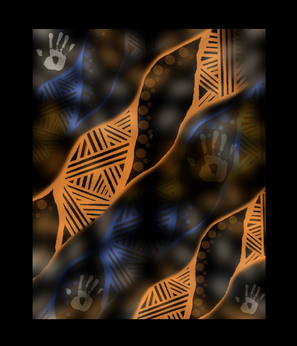 Interwoven Story-telling by Grace Williams (Community & Cultural Resource Officer, Leprena – UAICC Tasmania) Interwoven Story-telling by Grace Williams (Community & Cultural Resource Officer, Leprena – UAICC Tasmania) Twenty years ago now, I was working with the First Nations arm of the National Council of Churches, and was involved in organising a series of events called ‘Hearts are Burning’, each designed to re-ignite positive Christian engagement with First Nations people, and, above all, to help First Nations’ Christian voices to be heard. For the gifts of First Nations’ Christians are vital to any healthy futures for faith in these lands now known as Australia. As one of our keynote speakers back then, the late Aboriginal Bishop Jim Leftwich, would repeatedly, and strikingly, affirm, ‘the mission field has become the mission force.’ In other words, it is those who first received the Gospel in colonial, even imperial, form, who are typically now best equipped to speak genuine ‘good news’ in these lands today. That is part of why we mark today in the Uniting Church as the Aboriginal “Day of Mourning”: both to recognise the continuing impact of past imperial and settler colonial violence and also, crucially, to hear the voice of the Spirit speaking again today through First Nations peoples. It is therefore a huge delight to have Aunty Ali Golding with us again this morning, and, in a few moments, I want to hand over to her to offer her own reflections. For I do not intend to say too much myself this morning, except to share, very briefly, three questions which arise for me from our Gospel, as we mark this Day of Mourning…  In essence, Christmas is quite a queer thing - don’t you think? I don’t really mean its added oddities, like the 19th century, mainly English, extras, like the carols we sing, and the 20th century, mainly American, extras, like the exaltation of Santa. Those are aspects of Christmas down under which are part of our eclectic multiculturalism, even if they partly reflect our settler colonial culture and tend to work better in the northern hemisphere. For we have more than a little work still to do in listening to the Spirit in these lands now called Australia, including turning many of Christmas traditional symbols upside down and inside out. But that is less of a challenge when we truly celebrate the queerness of Christmas, especially in its original, biblically recorded, forms. For the stories of Christ’s birth - God made flesh - are, like queerness, full of extraordinary features, and very difficult to pin down. Indeed, the very idea that God is made flesh was, and is, a horror to many people. That means that matter matters, and, not least, our bodies matter – and every little bit of them – and caring for one another and our planet matters, because ‘matter matters’ and everything shares in this divine matter. Meanwhile, the idea that God is born in, and with, marginal and outcast bodies still seems so absurd and objectionable to many. For the biblical stories and symbols present God’s queer love: the ultimately irresistible power of Love which overturns all the neat boxes and boundaries of our oppressive world, and its typical ways of thinking. So, rather than trying to straighten out Christmas, as many people try to do every year, I believe that we are far better simply to enjoy its very queer ride: which involves keep adding to the oddities of this time of year, with fresh joy and creativity; and letting its divine queerness shine in us… 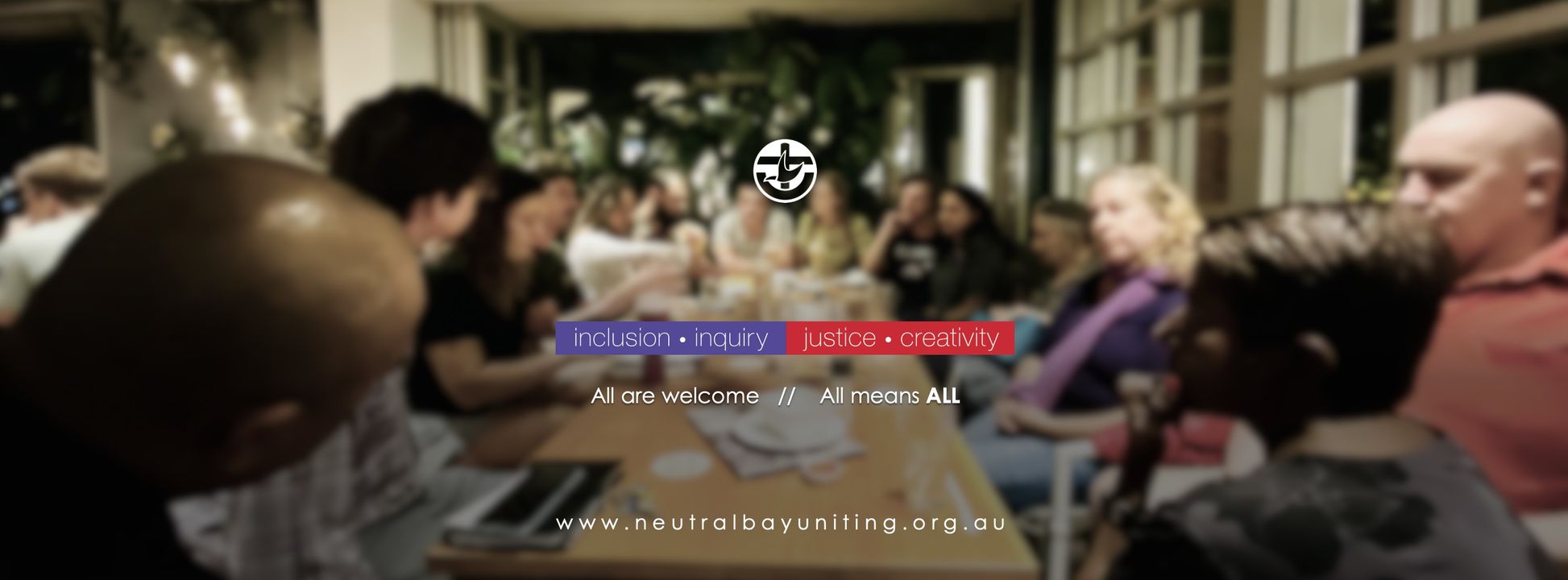 Alex may, or may not, remember the first time we met. It was at the start of a new year in which, finally, I was resolved to affirm my gender identity publicly. Dressed as a female, that Sunday I consequently chose MCC at Petersham as the safest space in Sydney to go to Church – Pitt Street Uniting Church would also have been fine but I already knew too many people there and that would have caused premature attention elsewhere. The MCC worship was uplifting and the community immensely welcoming. Over coffee, I then remember a gorgeous young man speaking beautifully and articulately, passionately and gently, about faith, life, and the possibilities of joy and community for us all, whoever we are. He opened us up to the experiences he was having in his studies in the USA, and some of the wonderful new life of progressive churches there. That young man was Alex, and, little did we know it, but our lives were to intersect frequently in the following years. Not least, after I came out publicly, MCC Brisbane was my second spiritual home, alongside the terrific Milton Anglican community. As Pastor there, Alex helped accompany me through that stage of life, enriching Penny and I, as well as so many others, with his gifts and love. Hopefully, we too offered some mutual support. Indeed, just as Penny and I were honoured to share in Alex’s ordination at MCC, and to walk with him through that time, so the last thing we experienced in Brisbane was a blessing from MCC for our journey into new ministry at Pitt Street Uniting Church, conducted by Alex. It has therefore been such a joy to be reunited with Alex here in Sydney, sharing not only times of struggle – such as the queerphobic attacks upon Pitt Street and the wider LGBTIQA+ community earlier this year, but new steps, such as that for which we gather today. All this too, is part of the shared inspiration which Penny and I, like Alex, draw from the extraordinary text of the book of Ruth which we have just heard…  Growing up, even as a little child I was fascinated by what was then known as the English Civil War (although, to be accurate historically, this is now rightly recognised as several different wars across the islands of Britain and Ireland). It was a bitter and brutal period, culminating in the judicial trial and execution of the King. For this was a powerful revolution. Indeed it saw the establishment of a republic, the Commonwealth and Protectorate under Oliver Cromwell. Moreover, in that latter period there was also an extraordinary flowering of truly radical religious and political life and thought. That, I think, was what especially drew me into the study of history. For the origin of many liberal democratic things we take for granted lie there – for example, the insistence on no taxation or legislation without representation, on regular elections, fixed parliamentary terms, equal votes, and, vitally, on religious freedom for different types of groups, particularly the marginalised. Indeed, Cromwell even reopened England to the Jews, who had been banned for centuries. For his supporters were also part of the movements which helped create Congregationalism, the original founding tradition of Pitt Street Uniting Church... One of my favourite contemporary spiritual songs is that which we heard before the beginning of our worship today – ‘I Am Mountain’ by Gungor (see YouTube link above). The lyrics are evocative of both rich ancient understandings and the best insights of modern life and science. They speak of profound presence, of the immanence and transcendence of the divine. They direct us to the heart of the life-giving spirituality of this Season of Creation. For, in Gungor's words, and ancient Christian orthodoxy proclaims, ‘there’s glory’ (‘beauty’ and ‘mystery’) in the dirt.’ As Christian, and other mystics, have affirmed, there’s ‘a universe within the sand, eternity within’ a human being. Often, we may indeed feel ourselves to be ‘wandering in skin and soul/ Searching, longing for a home’. Yet in truth, in memorable phrases, we are invited to see ourselves as:
Momentary carbon stories From the ashes Filled with holy ghost In the face of the climate emergency, we are also called, by ‘the light’, to ‘fight, fight for our lives’ - as we have also explored, particularly in last week’s reflections and discussions. However, above all, we are encouraged to acknowledge more deeply the wonder of the divine existence we share. For we are intimately related to our extraordinary world. All metaphors, as Gungor says, then begin to break down in the face of this astounding mystery and reality, as: Life is here now Breathe it all in Let it all go You are earth and wind… 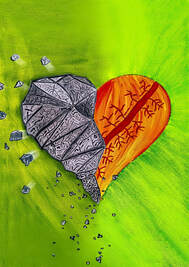 Three things immediately struck me in recently moving back to work again in the centre of Sydney. Firstly, so many of the high buildings had either grown even higher or had multiplied in number. Secondly, particularly in the adjacent areas north and west of Pitt Street Uniting Church, different Asian shops and cultures continue to grow in number. An official Koreatown now sits close to Chinatown, and other presences, including Malaysian, and particularly Thai, are not far behind. Thirdly, in the suburb where I live, each park has an acknowledgement of country, including the prominent words Budyeri gamarruwa – ‘welcome’ in Gadigal language. Each of these things are redolent to me of both the challenges, and the promise, of Pentecost today. For if we are to receive the Spirit of God more fully - replacing hearts of stone with hearts of flesh, and becoming one body in this land - these are part of the journey we make… 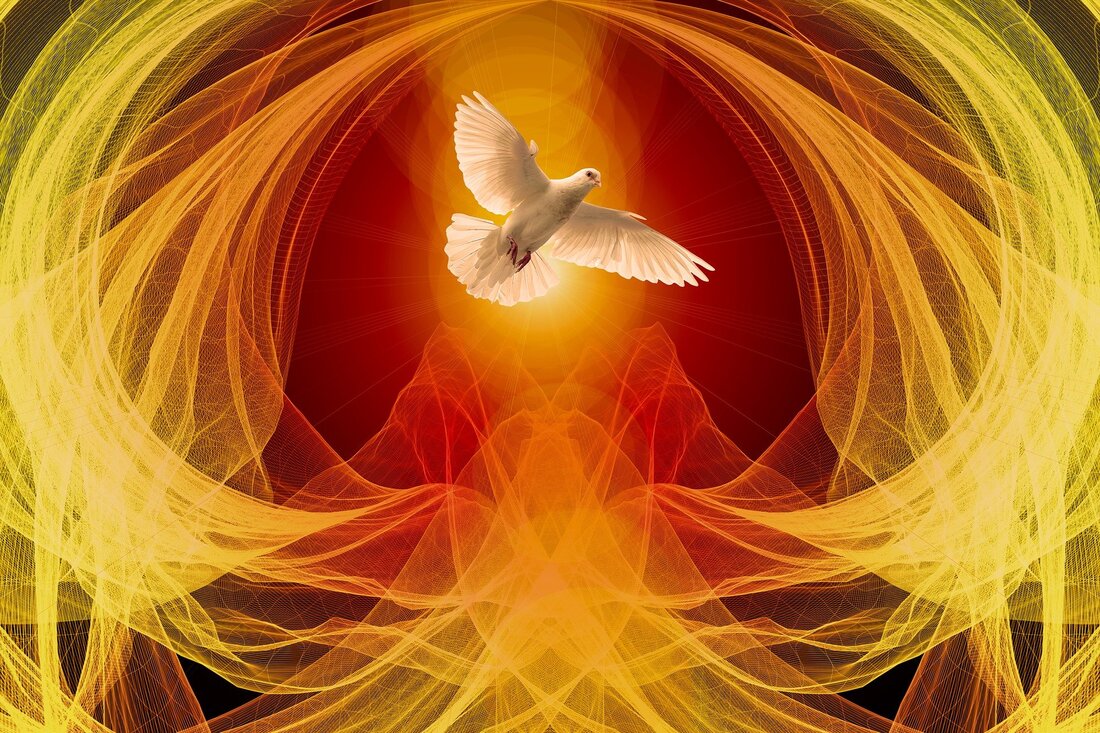 (Jo) What an abundance of rich spiritual images we have in our liturgy today – all trying to capture just a hint of the richness of the Holy Spirit. I wonder which speaks most vividly to you – is it the fire, the wind, the breath, the dove, the tongues, the living bones? Or is it the breathing, the blowing, the swirling, the burning, the dancing, the prophesying? For somehow nouns are never enough for the Spirit – we need the verbs, the present participles that suggest movement, motion, dynamism. One thing is certain, without the Spirit, we as individuals and the church would be stuck – it is the Spirit that moves through our ‘stuckness’ and constantly invites us to the new. We’re going to explore just a few of the pictures of the Spirit, acknowledging that no one image can ever come close to the fullness of this animating force of the divine. So, where to begin Penny?... 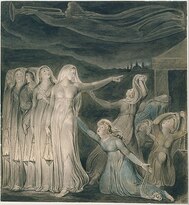 Our little confirmation group had a spirited conversation last week, looking at Scripture and how it came to be formed and how we might now interpret it. We were helped along by the early realisation that most of us have what was described as a ‘pick and MISS’ relationship with scripture. Now if that idea offends you, you might want to shut your ears for a few minutes. What we meant was that not all of scripture nourishes us – and certainly not all of scripture nourishes us all, all of the time. In fact, some of it could be seen as down-right dangerous and bad for our mental health. This brings us to today’s parable – which quite frankly I might have been inclined to put in the ‘miss’ bucket. It is attributed only to Matthew, which might give us pause to begin with, and its sentiments seem to run counter to much of what Jesus says in other places. But here it is in the lectionary, so what are we going to do with it?... “Let your gentleness be known to everyone. The Lord is near.” How fascinating! – the writer’s conviction that the second coming is at hand does not result in a plea for evangelism, or even for love, but rather for gentleness. So, what is to be gentle? The dictionary suggests, kindly, amiable, tender; or with more of a class nuance ‘of good family’ ‘noble’ – from the Old French from which we derive genteel. It is also a verb – ‘to gentle’ means to make less severe or intense, or perhaps to soothe by stroking; to treat with kindness and not cruelty. Gentleness is listed as the eighth of the fruits of the spirit in Galatians 5;22. As such it translates the Greek word prautes, which is sometimes rendered ‘meekness’, which has unfortunate connotations in modern English of servility. The Full Life Study Bible defines the word helpfully as ‘restraint coupled with strength and courage’...
|
Authors
sermons and reflections from Penny Jones & Josephine Inkpin, a same gender married Anglican clergy couple serving with the Uniting Church in Sydney Archives
June 2024
Categories
All
|
 RSS Feed
RSS Feed